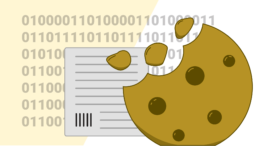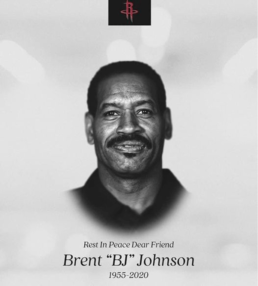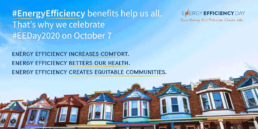What Google’s Cha-Cha-Changes Mean for Online Marketers
The line between privacy and personalization often gets blurred in the vast space of the internet. If you’re not sure how this affects you… then you’re probably not paying close enough attention. Knowledge is power when it comes to how you approach making decisions about your online presence. Get educated to make informed decisions regarding how you choose to conduct business (and personal work) online.
In 2021, Adults (and many kids) = Online Constantly
31% of U.S. adults are ‘almost constantly’ online, according to 2021 research from Pew Research Center. It’s not surprising; it’s so easily accessible. 85% of adults own a smartphone, spanning a wide range of demographic groups. And about ¾ of U.S. adults own a desktop or laptop computer. As remote work has increased during and post-pandemic life, virtual meetings and schooling are the norm, and lockdowns and social distancing have meant more time in front of screens and less time in face-to-face interactions. According to a recent article in Forbes, global online content consumption doubled in 2020 — raising the average daily time spent online for people in the U.S. to 6 hours and 59 minutes. If that’s the average, think how many people are spending more time online than that.
Are You In Control Of What You See Online?
While you might think you’re in total control of what you see while you’re on the internet, nothing could be farther from the truth. ‘Bots’ are watching your every move, tailoring content to what they think you’ll prefer to keep you glued to your screens for longer and longer periods of time. When you’re watching videos, your preferences are tracked so that the next batch of recommendations feels like it was selected just for you. When you’re shopping online, retailers track what stores, styles, and brands you love — so they can sell you more of what you like — and are likely to buy. Have you noticed how that website you looked at last week starts appearing in ads in all of your feeds? It’s no accident. They’re tracking you.
There are two sides to how this tracking-your-every-move may feel for you. Either it’s scary to think that the algorithms know what you’re doing, or it’s beneficial — because you see personalized ads that are relevant to you, not ads for products and services that are meaningless.
The Social Dilemma
If you didn’t realize the extent of personalized content following you around the internet, watch The 2020 documentary The Social Dilemma. This film makes it abundantly clear how powerful what we see on the internet can be. (And it’s pretty frightening, to be honest.)
The Social Dilemma shows prime examples of the evil side of the internet and how tech companies can affect the public. They didn’t intend for their powers to be used how it has, but alas, it’s too late. According to Wikipedia, the film shows how social media can “nurture addictions, manipulate people and governments, and spread conspiracy theories and misinformation.” Interviews with previous executives of Facebook, Google, Twitter, Mozilla, and YouTube shed new light on their platforms’ power and their experiences working for these companies. They explain how unintentionally — then uncontrollably — many social media channels have caused negative and problematic consequences. Many of them share that they won’t allow their own children to use social media. That alone is… shocking.
But, here’s the thing. For marketers who rely on using ads in social media platforms to reach their audience to build their brands and grow their revenue, targeting specific audiences to sell their products and services is nothing short of a godsend. By sending their marketing messages to people who (they believe) actually want to see them, their ad spend is well justified. And it’s lower than it would be if they were blasting ads to anyone and everyone on the internet, not knowing who would see them.
Cookies — What Are They And Why Should You Care?
Cookies are tiny text files that websites you visit place on your browser. When you visit websites, cookies remember your preferences, login details, products you like, etc. even after you leave the site. This data is used to target advertising to you that you “want” to see. And because targeted ads work (people enjoy personalized experiences when they’re browsing), marketers are mostly supportive of Google’s third-party cookies. (Third-party cookie comes from a domain other than the one you’re visiting.) However, the personalized experience teeters on the line of whether or not it’s too invasive of user privacy, so changes are coming down the pike.
Google’s Cookie Ban Is Coming
In an effort to increase privacy, in 2022, Google is planning to significantly — or entirely — reduce the number of third-party cookies to protect internet users from ads they don’t want to see. Known as the backbone of programmatic advertising for over a decade, the loss of third-party cookies will mean that marketers will need to re-think their strategies. Digital advertisers will have a harder time delivering personalized experiences, relevant content, and trusted human connections, according to Litmus.
What Should Marketers Do Next?
Since reliance on third-party cookies will not be an option next year, focusing on other marketing channels should be a top priority. First-party data — cookies created by the host domain — are still considered good. Email marketing is a channel that delivers a stellar ROI. Email is one of the most effective, high-performing channels because you own your email list — once people subscribe to hear from you, they’ve given you permission to land in their inboxes. You can decide what messages to send them and how often to communicate — without the fear that an algorithm or outside force will affect your strategy — because it never will.
Google’s cookie ban won’t be the only change in how to do business we see in the post-pandemic world. So, over the next 12 months, anyone who uses the internet to find, nurture, and acquire business (cue: everyone!) should consider updating their strategies, build resilience, and take advantage of new opportunities, and think outside the box for growth.
Lindsay Hope is a copywriter and marketing strategist with CoPeace. As a forward-thinking holding company, CoPeace is building a portfolio of carefully selected for-profit companies with measurable social and environmental impact. To learn more about impact investing, check out CoPeace’s Intro to Impact Investing.
Investing: What’s Holding You Back?

If you’ve never dabbled in the world of investing, even the thought of talking about money, financial returns, and building wealth can be intimidating.
For many people, investing is a foreign concept and one that might even bring doubt and uncertainty. From an early age, we’ve been taught to “save money” whenever possible. Unfortunately, all too often, investment strategies weren’t part of the conversation.
What if there were relatively simple solutions to help us ease into the investment world? Let’s start by asking ourselves, “What’s holding me back?”
I don’t know enough about investing.
The vast majority of us can relate to this. We didn’t study finance or economics in school. We’re not financial advisors, and we’ve never worked with one. Perhaps our parents or partners have always handled the finances, so we’re not in the trenches in our own budgets. Whatever your situation, it’s never too late to empower your inner investor by educating yourself. Start simple, do basic research. There’s a world of information available on the internet; start by mining through well-known and trusted websites. Talk to people you trust who have investment experience. Formulate a list of questions and seek answers. Consult with a professional advisor.
I can’t afford it.
There was a time in history when this might have been true — when only high-net-worth individuals could get into the investment game. This is no longer the case. There are now a variety of investment vehicles available, including crowdfunding and beginner investment websites. The entry point for investments can be as low as a few dollars!
It’s too risky… I’m scared to lose money.
Talking with a financial advisor will greatly benefit anyone new to investing. During this meeting, your trusted partner will talk with you about risk — they will assess your current financial situation including income, assets, age, and also get a feel for how much risk you are willing/want to take. It’s different for everyone, and you can set yourself up for success with the right plan based on your risk assessment. After you complete a professional risk assessment, you’ll have a much better idea of where to invest and how much money you should invest.
Investment options don’t align with my values.
Investment opportunities have changed for the better. We’re no longer limited to funds that support fossil fuels, tobacco, guns, and companies with unfair labor or trade practices. Driven by factors like sustainability and positive societal impact, mission-based investors can select ESG (Environmental, Social, Governance) impact investing — which allows everyone to put their money toward causes they care about, while still earning financial returns.
Don’t let any of these hesitations prevent you from taking the leap into the investment world! As you can see, there are options for everyone.
Meg Masten is the Chief Relationship Officer at CoPeace. As a forward-thinking holding company, CoPeace is building a portfolio of carefully selected for-profit companies with measurable social and environmental impact. To learn more about impact investing, check out CoPeace’s Intro to Impact Investing.
Building Great Teams

You “cannot f’ing throw the ball and catch the ball at the same time.”
– Giselle Bundchen
As the dust settles on the recent Tampa Bay Super Bowl win, and each side licks their wounds or celebrates in a parade, I am reminded of a poignant comment the current Super Bowl MVP’s partner, Giselle Bundchen, made after his 2012 Super Bowl defeat…”My husband cannot f’ing throw the ball and catch the ball at the same time.”
Giselle basically summed up, not only the same problem Patrick Mahomes faced nine years later, who at one point threw a perfectly placed ball while in midair completely parallel to the ground, only to have it dropped in the end zone by his receiver. She also described EVERY entrepreneur trying to build the right team to launch the success of their startup, while on a shoestring budget.
Great teams win games (this is my last sports metaphor, I promise) – and great teams also win in business. How do you do it and manage the budget while facing an already struggling economy during a pandemic? The answer is fractional support!
Can you afford a full-time CFO with six-figure salary per year? This is not the question you should be asking yourself. Instead, what financial support do you need to reach your goals and can it be parsed out for fractional work through a project?
Many of the companies that look to raise funds usually allocate a large percent for personnel hiring, which might not be needed all the time, depending on the stage of the company. They struggle to find the right talent within the constraints they are faced. Consider the ability for entrepreneurs to have access to high–level professional support on a project basis to help them move forward with their goals. The advantage of avoiding the high cost of experienced professionals on a full–time basis is a lot like hiring the star receiver just for the big throw (ok, that was the last one).
Hanan Levin is a Senior Investment Advisor at CoPeace. As a forward-thinking holding company, CoPeace is building a portfolio of carefully selected for-profit companies with measurable social and environmental impact. To learn more about impact investing, check out CoPeace’s Intro to Impact Investing.
Using PR to Win the Battle For Your Target’s Mind
“Once it (positioning) is accomplished and the company establishes share of mind, it will be translated into share of market. Therefore, positioning is really sales and return on investment.”
--Andy Marken, marketing and communications consultant
I’ve long believed — and continue to believe — that psychological (aka brand) positioning – the position you own in your target’s mind relative to competitors – is the critical success factor for marketing success.
This is especially true for new and early-stage companies.
Positioning is one of the 6 P’s of Marketing. Historically, there were 4 P’s of marketing (product, price, place and promotion). Most marketers believe there are six today. The fifth P is positioning and the sixth P is public relations.
The fact is, you can’t build a company/brand if you can’t win the battle for the mind. A company or product has to build a distinct and differentiated brand vs. competitors in the target’s mind. You have to stand out as unique in some way. If you’re not standing out relative to customers in the customer’s mind you’re not positioning – at least effectively. Ideally, your company or product will own a word, phrase or concept in the target’s mind. That’s what positioning — when done effectively — does.
Of course, you must translate your word or words into action to fully support the position you’re after. EVERYTHING a company does must reinforce the position it wants to own or create. As an example, if your desired position is “The city’s friendliest bank,” then you must not only have friendly tellers and loan officers, but friendly ads and be a friendly corporate citizen in the community, etc.
You can never FAKE a position. If a brand promise isn’t true, you not only won’t earn a position in the consumer’s mind, you’ll alienate him/her, developing negative brand equity. For example, if you claim to have the “best service in town!” You better walk the talk!
Traditionally, advertising has been the communications tool of choice for establishing a position in a prospect’s or customer’s mind.
But there are two significant problems with advertising when it comes to positioning for start-ups and young growth companies:
-
Advertising is very expensive.
-
Advertising lacks credibility in most consumers’ minds. You can control the message but the fact advertising lacks credibility lessens that advantage.
So, what is a company in its embryonic-stage of growth to do? Use PR. Public relations is a powerful positioning tool. It’s actually preferable to advertising except in the rare instance. Why? PR has two important advantages over advertising when it comes to positioning strategy development and execution:
-
PR is significantly less expensive than advertising.
-
PR provides third-party credibility that advertising can’t.
To get a new company or brand started from scratch, the validity that third-party stories or endorsements can bring are critical in establishing psychological positioning relative to competitors. That’s why a well-planned and well-executed PR campaign should be a high priority for new and early-stage companies.
And it all starts with a strong positioning strategy.
Ken Reed is a Senior Communications Advisor at CoPeace. As a forward-thinking holding company, CoPeace is building a portfolio of carefully selected for-profit companies with measurable social and environmental impact. To learn more about impact investing, check out CoPeace’s Intro to Impact Investing.
2020: Cloudy with a Chance of Thundersnow… and a Twinkle of Hope
Until you’ve experienced it, you might not believe that thundersnow exists. When you put these two words together, they sound like a make-believe fairy tale nightmare or a phony phrase created for children’s books.
News flash: Thundersnow is real. And it’s perhaps a cruel metaphor for 2020.
Is it thundersnow, or is it COVID?
During a thundersnow storm, snowfall intensity severely limits visibility, winds atof or above tropical storm force are frequent, frostbite is nearly instant if you’re exposed to the elements, and the positive polarity is associated with greater destructive potential than lightning. So… not only is it something you’d never expect to happen, but you have to stay inside to stay safe. It’s kinda like living through COVID.
If there’s one takeaway from a year that seemed so promising when the ball dropped in Times Square on December 31st, ringing in a decade that we only dreamed about in sci-fi novels — it’s that we are resilient. We harnessed the concept of change agility, learned to be nimble in our (personal and business) goals and actions, and remembered to acknowledge gratitude and hope in a more authentic way than ever before.
Our wish for you
If you’ve experienced personal loss, job loss, illness, or hardship of any kind this year, we’re holding you in our hearts. We wish nothing but strength, healing, and abundance for you in the New Year.
What’s 2021 look like?
Right now, we’re faced with a future that seems to be filled with more questions than answers. We ask ourselves questions like, “Can business really be a force for good?” and “Is it possible to focus on mission-based work and still make a profit?” Challenging the status quo is healthy — after all, our children’s future depends on the decisions we make right now.
Climate change? It’s real. Social inequality? The gap is widening between the rich and the poor. A massive shift in the way companies do business? It’s happening. Goodbye offices, hello Zoom, and welcome to a new trend of outsourcing and utilizing contract work — companies are bringing in experts on a project basis rather than hiring a more robust full-time staff. This strategic move saves businesses money on benefits, training, and supplies. Additionally, it allows for a more flexible work schedule and focuses on areas that a smaller company may need to utilize on an intermittent — or temporary — basis. With the rise of a “gig economy,” or a free market system of employment, this strategy is also appealing and beneficial for contractors based on short-term and temporary contract work.
There are a lot of things that have gone right this year; let’s not forget that. And as we straddle the line of empathy and ambition, we’re here to be the light at the end of the tunnel of 2020. All of the trends we see as this year comes to an end drive our strategic goals for 2021.
We believe in the twinkle of hope that the New Year brings. Onward!
Lindsay Hope is a copywriter and marketing strategist with CoPeace. As a forward-thinking holding company, CoPeace is building a portfolio of carefully selected for-profit companies with measurable social and environmental impact. To learn more about impact investing, check out CoPeace’s Intro to Impact Investing.
Giving Gifts with Purpose

Happy Holidays!
December is a special month, and we have so many holidays to celebrate in December. We have Hannukah, Christmas, and Kwanzaa. All these festivals believe in peace, joy, and unity all over the world. With all the craziness going on in the world currently, these holidays are awaited so eagerly.
With holidays comes the gift-giving. We need to be mindful of giving gifts to our loved ones. Sometimes, the gifts we give are returned or not liked. A unique and different way of gifting is financial gift-giving, which includes contributing to college costs, giving charities, cash, stock and impact investing.
Gift as Stock
Many parents and grandparents like the idea of ushering their children or grandchildren down the path of financial literacy and financial responsibility. Giving kids a financial gift starts the conversation of how much to spend on something for myself, how much to save toward a major goal, and how much to share with others in need. You can give by purchasing stocks, bonds, mutual funds, or ETFs as a holiday gift to children. It helps if the stocks are in companies, such as Apple, Disney, or Facebook, that they know, understand, and get excited about. Stockpile is one such company which allows you to buy gift cards that recipients can redeem for fractional shares of stock in over 1,000 companies and ETFs.
College Savings
If you have younger children on your list this year, but you still want to give the gift of education, look into opening a 529 plan or contributing to an existing account. These are tax-advantaged accounts specifically designed to help families save for education costs.
Student loan debt
While saving for college can make a great gift, paying off student loan debt is also a worthwhile approach to holiday giving. There is company called Gift of College which has its gift cards available to make the payments for the student loans.
Job skills
Help your friends and family sharpen their skills or expand their knowledge base this holiday season. You never know; it could lead to a promotion or a better paying job in the new year. Online learning websites like Udemy, Coursera, and LinkedIn Learning provide gift certificates to offer someone to take courses.
Charity as a gift
The season of giving is upon us, and this year especially, the need is great. Consider giving a donation or making a charity as a gift this year — it’s a great way to give back to others. It also demonstrates how well we know our loved ones by supporting the causes they care about. In addition to charitable giving being a rewarding experience, it comes with tax benefits.
Impact Investing
If you’re currently assessing your budget and have extra dollars you’d like to spend this year investing in your family’s future…Or if you’re looking for a fresh, new idea for how to spend your EOY budget allocation for investments…
Right now *might* just be the perfect opportunity for you to invest in CoPeace before the end of the year. Investing now is an opportunity to use your dollars for good — by supporting causes you care about and earning financial returns.
I believe, there are so many ways to make gift-giving in a real sense meaningful and purposeful.
Aarti Karnik is the Director of Web Development with CoPeace. As a forward-thinking holding company, CoPeace is building a portfolio of carefully selected for-profit companies with measurable social and environmental impact. To learn more about impact investing, check out CoPeace’s Intro to Impact Investing.
Tears for Tears

The tears in our cultural fabric are deep. We are torn and divided. We have little common ground. Do we give up? Eat more cheese? Stay on the couch? Invest in Chevron?
The challenges in front of us are real and consequential. The U.S. election season highlighted the current schism in our world and exposed the inequalities in front of us all:
- There are no easy solutions for the CoVID-19 pandemic. People are sick and people are dying. My 26-year-old son spent a night in the ER and my sister-in-law’s father died last week. The virus is scary and real.
- The struggle for racial justice has been deeply exposed through our current divisions.
- The climate crisis does not give us much time to get our act together.
These bullets are overwhelming. The key is to work to find possible solutions and create a plan of action, and then act. We can solve problems by attacking them head on, incrementally.
The ancient Chinese philosopher Lao Tzu taught that there is your way, my way, and the way of truth. We need to separate people from the problem and focus on the common ground that is the truth:
- I know it is obvious, but science and data must lead the solutions for the pandemic. My wife is a nurse and she is encountering CoVID-19 patients. Because she and the nurse-doctor team take it seriously, wear their PPE, wash their hands, and keep physically as distant as possible (not that easy when giving shots, etc.), nobody on her team has contracted the virus. Business and school can be conducted if it is done very carefully. Follow the data to open safely.
- We all need to recognize the racist past of our world and be honest about how it has created systems of inequality. We share this past. Actively creating new systems, and businesses, that change the access and opportunities for disadvantaged communities provides multiple pathways to change. Diversity does make us stronger. Fixing would help (here is one proposal driven by data). Support companies like FreeCap.
- The climate crisis is real. While the clock is ticking, there are solutions that are creating change and opportunity. It ends up being a good business decision to care about the long-term future of our world (I know I say that often). Watch David Attenborough: A Life On Our Planet. Support companies like Uncharted Power.
It is a difficult time to write a blog – to recognize the real challenges, while simultaneously seeking common ground – and authentically demonstrating optimism for a brighter future.
But we do share so much as one human race. We can be together. We do have the agency to affect positive change. Our common bond is a better collective future. Drink more water. Move with purpose. Invest in impact. Invest in Change Finance.
Allow tears of joy to flow and to start healing the deep tears. Seek solutions to the problems and find common ground to move forward. I am.
Craig Jonas is the CEO and founder of CoPeace. As a forward-thinking holding company, CoPeace is building a portfolio of carefully selected for-profit companies with measurable social and environmental impact. To learn more about impact investing, check out CoPeace’s Intro to Impact Investing.
Make a Difference Day
Saturday, Oct. 24, marks the 28th National Make a Difference Day, the largest national day of community service.
Here at CoPeace, it may truly be the reason we exist today. It’s when we individually reached a point in our careers, and focused on a greater cause, and committed to make an impact, that our impact-driven company, CoPeace, was born.
As we sit with our brothers and sisters from around the world in a pandemic these past seven months, we see homelessness, divisiveness, hunger and climate crisis all around us. It’s been the most dire of times for so many of us, I’m not sure if there has ever been a more needed time for community than now.
Making a difference can take many different forms. One can make a difference by checking in on the elderly, or collecting cans for a food pantry, or picking up litter. There are many volunteer opportunities and acts to help mitigate the planet’s bigger issues such as plastic waste, greenhouse gas emissions, and water scarcity.
The local chapters of United Way have done an incredible job within their local communities, mobilizing to different causes.
Even the smallest of efforts can change a community and subsequently the world.
The Aspen Strategy Group is leading an effort to establish a National Service. A non-political program to bring “community” back, front and center, providing jobs and assistance where it’s most needed. A program that could help working parents teach STEM to under-privileged communities and close the opportunity gap.
When I think of the power and intention of this day, I can’t help but think of my recently departed friend Brent Johnson. B.J. was a scout for the Houston Rockets and a pillar in the basketball industry.
B.J. had an infectious smile and made time for everyone around him. He was the ultimate giving person.
His impact was felt by all he touched. To aspiring basketball players, he encouraged them; to community members, he welcomed them and shared; to industry colleagues, he treated them with respect.
He made sure you knew that you were valued by him. His character was exemplary. All of his days on Earth were like how I lived my best day as a person.
You may know what I am talking about. That one day, when I was my absolute best as a human being, when I was able to put everything aside, and do something absolutely selfless. Something that afterwards I would literally glow, basking from it. That’s how B.J. was every day.
I think we all know someone like that. Someone that was or is such a special soul that makes everything around them better. We marvel at them and it motivates us to be better versions of ourselves.
Saturday, Oct. 24 is our opportunity to do as B.J. would do. An opportunity to be selfless and be our best versions of ourselves for National Make A Difference Day. Please join me!
Leigh Klein formerly worked as the Director of Sport Strategy at CoPeace. As a forward-thinking holding company, CoPeace is building a portfolio of carefully selected for-profit companies with measurable social and environmental impact. To learn more about impact investing, check out CoPeace’s Intro to Impact Investing.
CoSpo: Changing the World Through Sports
I love sports.
I’ve been involved in sports in one way or another my entire life. I love the competition, the teamwork needed to be successful, the human drama, the camaraderie, the physical fitness aspect, and the lifetime friendships that develop.
But I also love sports because they can bring out the best in humanity. Sports can positively impact the world in ways well beyond the playing fields, courts and ice rinks.
Nelson Mandela said it perfectly, “Sport has the power to change the world, the power to inspire and the power to unite people in a way little else can – it is an instrument for change.”
Sport is certainly a powerful cultural institution, and it can be tapped for good.
“The rituals of sport engage more people in a shared experience than any other institution or cultural activity today,” said author and public policy consultant Varda Burstyn.
Through the years, there has been a lot of excellent philanthropic work done through sports. At CoPeace, we celebrate that fact and encourage it. However, we think there’s tremendous potential to impact the world via sports well beyond the limitations of pure philanthropy.
That’s why we launched CoPeace Sports, or CoSpo, this week. CoSpo is a wholly-owned sports impact subsidiary and is part of the CoPeace holding company portfolio. CoSpo’s mission is to help athletes, coaches and sport organizations maximize their ability to positively impact society.
CoPeace Sports is legally designated as a public benefit LLC (PBLLC). As such, we can help sports entities of all kinds enhance their positive impact activities through both non-profit and for-profit endeavors and activities.
We have a lot of sports-related experience on the CoPeace team. We’ve seen how sports can bring people together in pursuit of a common cause, and we want to leverage that uniting aspect of sport for the good of society.
“Sports is just such a powerful thing,” said Ed Tepper, CoPeace’s chief operating officer. “It taps into the emotions, and we have an incredible opportunity here to use that power and direct it in a positive way that goes far beyond anything philanthropy can do—to create self-sustaining opportunities for companies to do good, help others and make money at the same time.”
CoPeace Sports has been created to be a true win-win endeavor and I’m excited to see the positive impact the company will have as it grows.
Ken Reed is a Senior Communications Advisor at CoPeace. As a forward-thinking holding company, CoPeace is building a portfolio of carefully selected for-profit companies with measurable social and environmental impact. To learn more about impact investing, check out CoPeace’s Intro to Impact Investing.
October 7 is Energy Efficiency Day

Some people might say energy conservation is a big problem best handled by government and industry. While this can certainly a significant part of the solution, there are many things that we can do now as individuals to create positive change by incorporating energy conserving practices in our homes or offices!
Why not celebrate Energy Efficiency Day by taking actions that all of us can do? You can make a difference today by starting new habits and traditions which are both good for the planet and good for your financial wellbeing. Here are some suggestions that benefit everyone:
- Use what you need and unplug the rest! Every electrical item doesn’t need to be always on or plugged in. Adopt a use when needed approach.
-
- Turn off lights when not necessary
- Unplug electrical items that are not used regularly
-
- Run the dishwasher and laundry machines during off-peak hours to reduce your utility bills and take a load off your power grid
- Install energy conserving devices such as thermostats, LED lights, timers, etc., to match peak and off-peak usage levels
- Choose Energy Star Appliances and Equipment
- Take a walk or ride a bike more often and drive less
- Take the stairs instead of an elevator or escalator
- Consider solar panels for electricity, heat, and hot water to reduce power grid usage.
- Install water-saving plumbing fixtures, toilets, shower valves, shower heads which ultimately reduces energy consumption.
Energy efficiency is not only good for the world and good business, and it’s great for your wallet too! Save the world and save money by conserving energy today. Happy Energy Efficiency Day!
For more energy saving tips please visit the official Energy Efficiency Day website.
Ed Tepper is the Chief Operating Officer and Chief Finance Officer at CoPeace. As a forward-thinking holding company, CoPeace is building a portfolio of carefully selected for-profit companies with measurable social and environmental impact. To learn more about impact investing, check out CoPeace’s Intro to Impact Investing.














